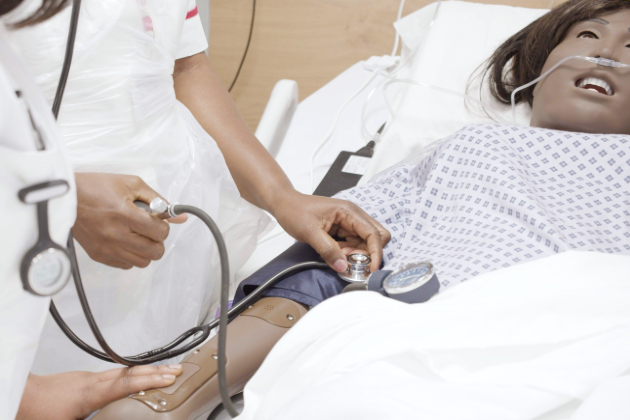At the beginning of 2023, the Nursing and Midwifery Council (NMC) confirmed that education institutions can use simulation to provide up to 600 of the 2,300 practice learning hours nursing students must complete.
But what exactly is simulated learning and what benefits does it bring? We went behind the scenes of Middlesex University’s state-of-the-art simulation centre to find out. Watch our film.
What’s the RCN’s view?
The RCN believes that simulation-based education (SBE) must be quality assured and accredited, and we will promote the use of standards to guide the design, development, implementation, and ongoing monitoring of the effectiveness of SBE in nursing across the UK.
We believe SBE must meet the evolving learning requirements of nursing students. It has potential to change health care education positively. For example, students should expect simulation to prepare them for working in environments increasingly shaped by technology.
SBE should reflect the diversity of the nursing working environment and access should be equitable. It must also be evidence-based. We support the need for further research that demonstrates which simulation strategies have positive effects on learning for different types of clinical work.








